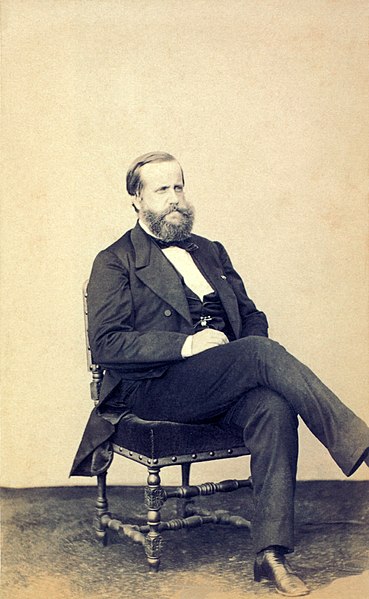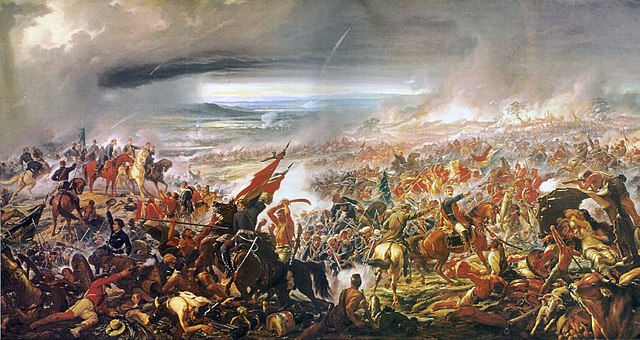The Third Italian War for Independence
The Italian Government enacts the Italian Armaments Bill of 1867 into law, massively increasing the output by Italian factories in Piedmont. The bill was to ensure that the Italian Army was massively supplied with weapons and other equipment. The massive expansion in Piedmont caused economic growth to explode in Northern Italy, and the public opinion was soaring higher and higher.
[-£2,472,583 to Italy. +25% Equipment to Italy. +0.89% Economic Growth to Italy. +16% Public Support to Italy.]
The United Republics begins a massive propaganda campaign to mobilise the citizens of the United Republics to fight against the tyranny of the Italian Monarchy. Thousands of men quickly take up arms, and the Republican Army marches to Aquila, in an attempt to defend against any and all Italian attacks.
[+146,204 Conscripts to the United Republics.]
While this was going on, the government in Naples takes the time to buy weapons, most of which where purchased from the French Empire. News of this caused a deep, and powerful, anti-French sentiment amongst all of the people of Northern Italy. This massive anti-French sentiment helped the Kingdom of Italy, as they tapped into this to raise their standing amongst their own population.
[-£1,952,601 to the United Republics. +10% Equipment to the United Republics. +14% Public Support to Italy.]
The United Republics demands, and takes, all of the land of the Nobles who still resided within the United Republics. While they only had a mild discontent for the Republican government, they soon broke out in open rebellion against them, promising many more money than the government could give, and the King’s Italian Regiment was formed, a pro-Monarchist Army that quickly set to try and destroy the Republican government from within.
[+£15,269,204 to the United Republics.]
The opening moves by the Italian Government was to establish a complete blockade of all ports held by the United Republics, which quickly shuts down their trade.
In a meeting, Giuseppe Garibaldi quickly begins to formulate the plans for the capture of Apulia from the United Republics. The Italian's dominance of the seas around the United Republics allowed Garibaldi to attempt a daring strategy. With the approval of the Italian Army, Garibaldi takes himself, and fifty thousand soldiers, and lands in Bari, quickly moving south to secure the rest of the Apulia Peninsula. No resistance was met in the peninsula, as it had been taken over by the nobles. Garibaldi's Army, along with some recruits, moves to try and capture the town of Potenza from the Republicans.
The first movements are taken by Garibaldi, who, having done a naval invasion, was poorly equipped, but the spirits of his army where high. The Republicans had large amounts of French Arms, and quickly moved to try and resist the movements of Garibaldi's Army. Many screaming for the independence of Naples, the preservation of their way of life, and for disunity to overtake the Peninsula.
Moving quickly to the city, the Republicans put up their first line of defense. Many of the men, however were just farmers a few weeks ago, and many struggled to use the cannons and the weapons they purchased from the French. Garibaldi's skilled army quickly used several flanking maneuvers, forcing the Republicans to surrender, and with them, a large amount of valuable equipment, cannons, and guns, that Garibaldi quickly redeployed, and focused on the city.
[-4% Equipment to the United Republics. +4% Equipment to Italy. -1,203 Regulars to Italy. -35,204 Conscripts to the United Republics.]
Garibaldi quickly moves in to try and capture the city. The city itself, offers to surrender to Garibaldi, but the Republican Army attempts to put up a defense anyway, looking to try and stop the Italians from gaining anymore ground. This, in it of itself, was the worst mistake they could have made. Garibaldi's Army began negotiations with the city's government, and asked for help against the Republicans Army. They agreed, and soon the Republicans were assaulted from both sides, where they were forced off, and disengaged, retreating to the south.
[-582 Regulars to Italy. -3,104 Conscripts to the United Republics.]

Fighting at the Battle of Potenza.
The bulk of the Italian and Republican Armies, however, met in several battles along the border between Italy and the United Republics. With Garibaldi's campaign in Apulia, the Italian Army was determined to surge into the United Republics, link up with Garibaldi, and crush the rebellion. The massive success of Garibaldi made the Italians confident, marching into the area with massive amounts of arms and cannons. Upon reaching L'Aquila, the Republican Army simple collapsed when they attempted to put up a resistance.
Fighting continued as the Italians moved into the south, restoring Italian Order first and foremost. The Republicans continued to crumble under the might of the Italians, as the strength of the Republican government was seen to be less than was originally through.
[-3,602 Regulars to Italy. -38,205 Conscripts to the United Republics.]
A tough choice faced the United Republics. Many estimates showed at this rate, the Italians would win a total victory by the end of the year. The strength of the Monarchist movement, as well as Italian Nationalism, seemed too much compared to the ideas of Liberty, Freedom, and Equality. What worked within the Commonwealth of the Danube, seemed to not have any effected in southern Italy.


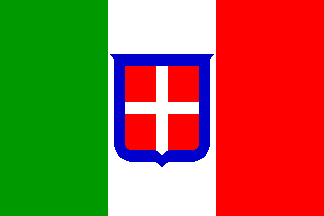

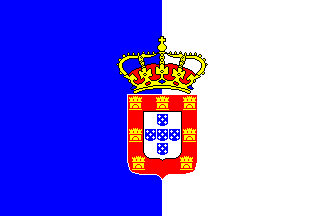



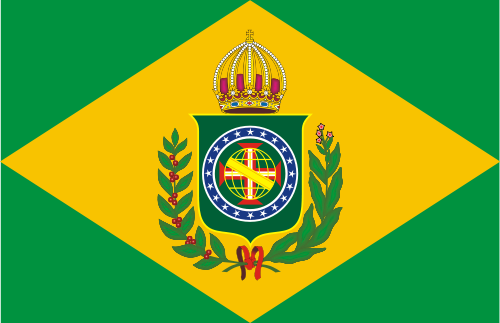

.svg/222px-Greek_CoA_(1831-1863).svg.png)
